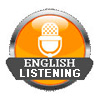|
Ejemplos de frases y expresiones de "there is" (todas las combinaciones) en inglés con traducciones al castellano. En el presente, "is" se utiliza para todo que es en singular (ej. "a pen", "a problem") o no contable (ejs. "water", "ice-cream"). "are" se utiliza para los plurales (ejs. "pens", "children").
|
|
There is / There are (there's / there're)
|
Hay
|
|
There is not / There are not (there's not, there isn't / there're not, there aren't)
|
No hay
|
|
Is there? / Are there?
|
¿Hay?
|
|
Isn't there? / Aren't there?
|
¿No hay?
|
|
There will be (there'll be) (singular o plural)
|
Habrá
|
|
There will not be (there won't be) (singular o plural)
|
No habrá
|
|
There is going to be (there's going to be) / there are going to be (there're going to be)
|
Va a haber
|
|
There is not going to be (there's not going to be, there isn't going to be) / There are not going to be (there're not going to be, there isn't going to be)
|
No va a haber
|
|
There was / There were
|
Había (hubo)
|
|
There was not (there wasn't) / There were (there weren't)
|
No había (no hubo)
|
|
There used to be (singular o plural)
|
Solía haber
|
|
There did not used to be (there didn't used to be) (singular o plural)
|
No solía haber
|
|
There may be / There might be / There could be (singular o plural)
|
Puede que haya
|
|
There may not be / There might not be (there mightn't be) (singular o plural)
|
Puede que no haya
|
|
There would be (singular o plural)
|
Habría
|
|
There wouldn't be (singular o plural)
|
No habría
|
|
There would have been (singular o plural)
|
Habría habido
|
|
There would not have been (there wouldn't have been) (singular o plural)
|
No habría habido
|
|
There have been (plural)
|
Ha habido
|
|
There have not been (there haven't been) (plural)
|
No ha habido
|
|
There has been (singular)
|
Ha habido
|
|
There has not been (there hasn't been) (singular)
|
No ha habido
|
|
There should be (singular or plural)
|
Debe haber (debería haber)
|
|
There should not be (there shouldn't be) (singular or plural)
|
No debe haber (no debería haber)
|
|
There should have been (there should've been) (singular o plural)
|
Debería haber habido
|
|
There should not have been (there shouldn't have been) (singular o plural)
|
No debería haber habido.
|
|
Utilizamos "there are" para expresar la cantidad de personas que hay en un grupo:
|
|
There are five of us (y no, we are five).
|
Somos cinco.
|
|
There are three of you (y no, you are three).
|
Ustedes son tres..
|
|
There were a lot of us.
|
Eramos muchos.
|
|
There isn't anybody there.
|
No hay nadie / no está nadie.
|
|
Is there anybody at home? / Is anybody at home?
|
¿Hay alguien en casa? / ¿Alguien está en casa?
|
|
Cuando hablamos de cantidades indefinidas, solemos utilizar "some" y "any" delante de los sustantivos plurales o incontables:
|
|
There are some pens on the table.
|
Hay bolígrafos en la mesa.
|
|
Are there any people in your class?
|
¿Hay gente en tiu clase?
|
|
There aren't any fish in that river.
|
No hay peces en ese río.
|
|
There's some money on the table
|
Hay dinero en la mesa.
|
|
Is there any milk?
|
¿Hay leche?
|
